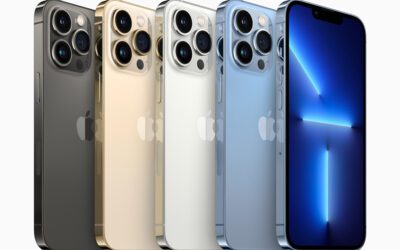Earlier this month, I wrote about the Trump administration’s expansion of the Obama administration’s Customs and Border Protection (CBP) examination of U.S. visitor social media information and cellphone contents at the U.S. border.
Now it appears that the Trump administration is expanding CPB’s examination of visitors’ electronic devices to U.S. citizens and permanent residents.
At the end of January, Sidd Bikkannavar, a NASA Jet Propulsion Laboratory employee, flew from Santiago, Chile, to Houston, Texas. Bikkannavar, a U.S. citizen, said he was detained by CBP and pressured to give them his NASA issued smartphone with its access code. Refusing at first, he eventually relented. The phone was returned to him at the airport. Bikkannavar wasn’t told what information CBP took from the phone.
Earlier this month, electronics salesman Haisam Elsharkawi, another U.S. citizen, was stopped at the airport, questioned, then handcuffed prior to more questioning for almost three hours. While detaining him, CBP repeatedly pressured him to turn over his smartphone, unlocked. Eventually he gave in. He was released after CBP reviewed the contents of his phone for about 15 minutes.
A Customs and Border Protection spokesperson revealed that in 2015 they inspected 4,444 cellphones and 320 other electronic devices for a total of 4,764 devices. In fiscal year 2016, they examined 23,000 devices, a 482 percent increase.
To give that some perspective, that’s less than 0.0058 percent of international arrivals to the U.S., but I’d ask, “What if it’s you?”
What are your rights if U.S. CBP detains you and demands to examine your phone?
The U.S. Supreme Court has repeatedly ruled that at the U.S’ international border and its functional equivalent (international airports), the U.S. Constitution’s Fourth Amendment protections don’t apply. CBP agents don’t need “probable cause” or even “reasonable suspicion” or a warrant, to search your belongings, including your electronic devices.
The most significant recent case concerning searching electronic devices at the U.S. border was in 2008. In United States v. Arnold, 523 F.3d 941, the U.S. Court of Appeals for the Ninth Circuit held that the Fourth Amendment to the U.S. Constitution does not require government agents to have reasonable suspicion before searching laptops or other digital devices at the border, including international airports.
There is considerable controversy with the court’s decision, as they ruled that a laptop is no different than any other container such as luggage or a briefcase. Critics argue, as do I, that laptops and other electronic devices contain far more sensitive and personal data than any ordinary suitcase or business briefcase. We argue that justification for searches of electronic devices should be at least “reasonable suspicion.”
The U.S. Supreme Court denied Arnold’s petition to appeal the case, so for now, CBP has essentially limitless power to inspect travelers’ electronic devices at the border, including those of U.S. citizens.
What are your rights when a CBP agent wants to search your cellphone?
Whether you’re visiting the U.S. or a returning U.S. citizen or permanent resident, at this time, CBP agents at the border may take possession of your laptop, cellphone and tablet to inspect it and search its contents.
If you’re a U.S. citizen, you don’t have to unlock your laptop, cellphone or tablet to allow CBP to inspect it, but if you refuse, you better be prepared to be detained for a while. Haisam Elsharkaw was detained, handcuffed and questioned for about three hours before he gave into CBP demands. We’ll never know how much longer he might have been held by CBP agents had he continued to refuse access.
Sometimes, CBP agents will let you be on your way quickly, but hold on to your electronic device(s) for weeks to inspect them. If they get in, they will likely copy their data.
If you’re a U.S. citizen, you’re guaranteed re-entry to the U.S., but if you’re a visitor, while you can refuse to comply with CBP access code and password demands, CBP can deny you entry to the U.S. and send you home, at your expense. For permanent U.S. residents, it’s anyone’s guess what will happen if you refuse access to your electronic devices, as experts admit the law is murky about permanent residents’ U.S. reentry rights.
Can CBP agents force you to give them access to your social media accounts?
If you’re a U.S. citizen, visitor or permanent U.S. resident, the answer to whether or not you need to give CBP access to your social media accounts is the same as giving them access to your electronic devices. If you use social media accounts on your cellphone, you’re likely permanently logged into your accounts, so if you give CBP access to your cellphone, you’ve also likely given them access to your social media accounts.
I can’t recommend if U.S. citizens, permanent residents, or visitors to the U.S. should say no to CBP’s electronic device inspection. I can recommend that each traveler needs to understand the consequences of their refusal to cooperate with CBP before traveling.
After many years working in corporate America as a chemical engineer, executive and eventually CFO of a multinational manufacturer, Ned founded a tech consulting company and later restarted NSL Photography, his photography business. Before entering the corporate world, Ned worked as a Public Health Engineer for the Philadelphia Department of Public Health. As a well known corporate, travel and wildlife photographer, Ned travels the world writing about travel and photography, as well as running photography workshops, seminars and photowalks. Visit Ned’s Photography Blog and Galleries.



